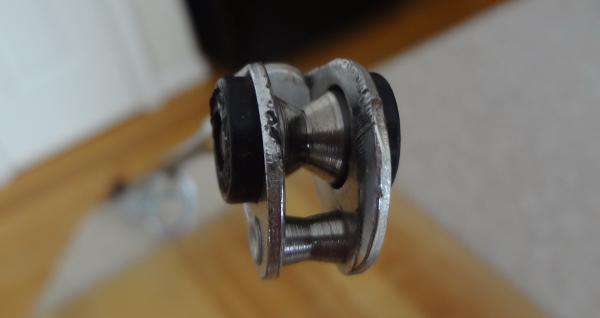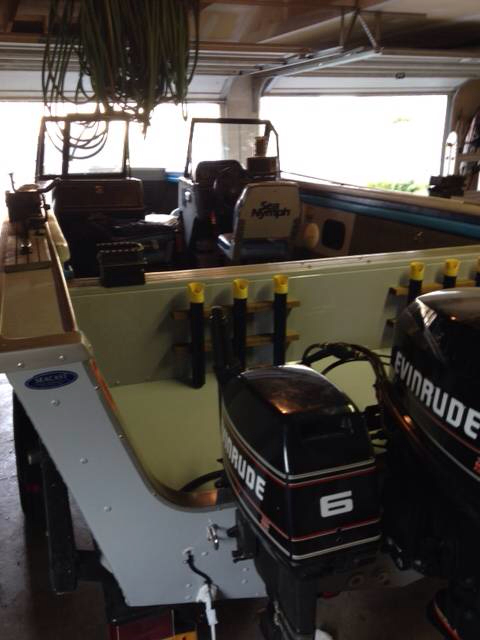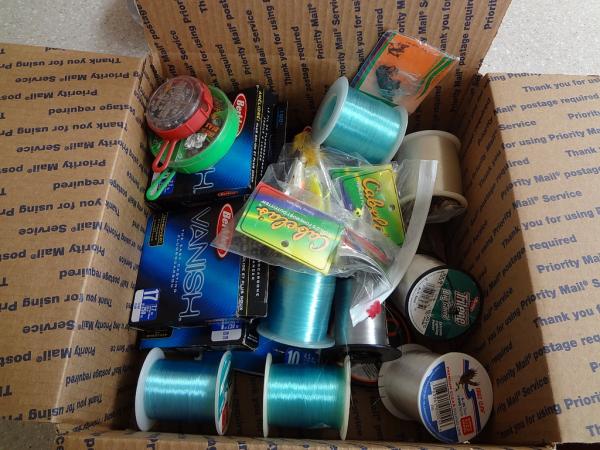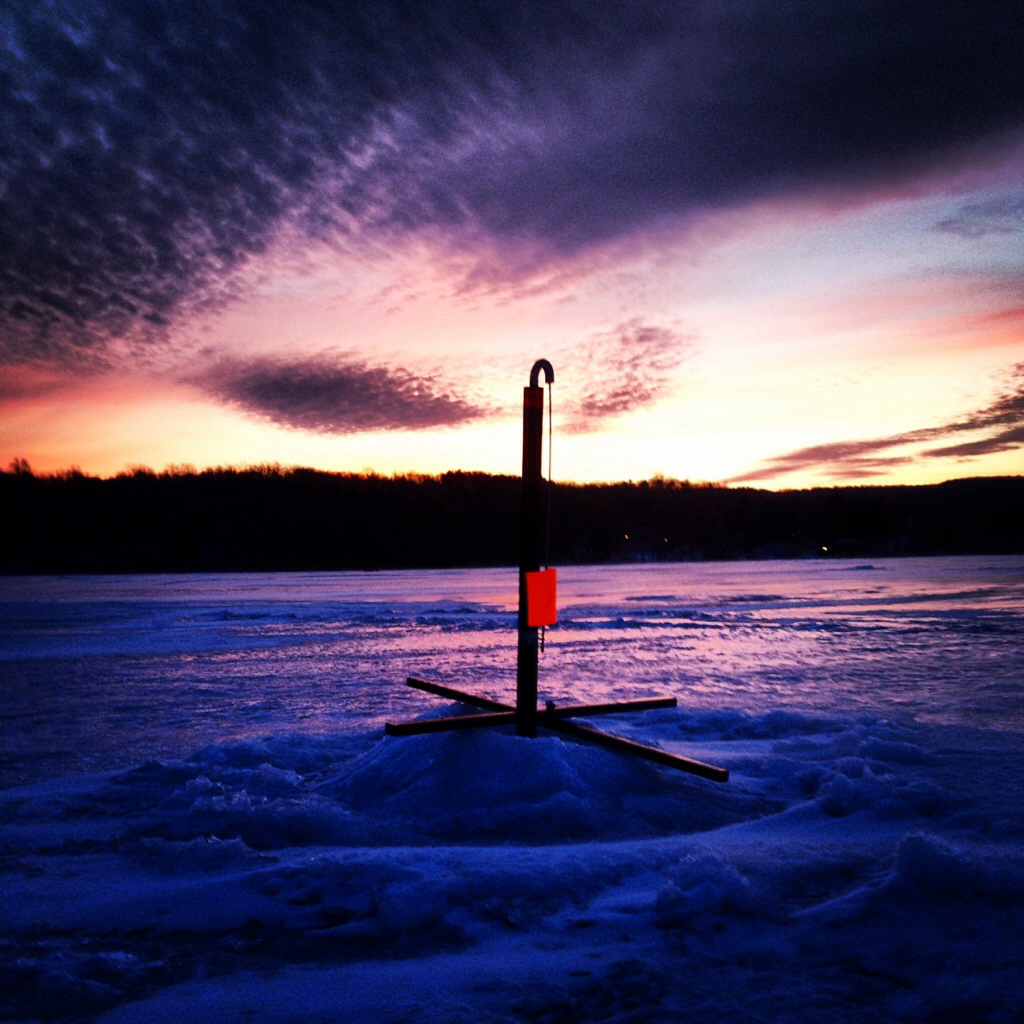-
Posts
13,873 -
Joined
-
Last visited
Everything posted by Sk8man
-
Always worth a shot John especially at the price you paid for the material Best of luck with it!
-
Often a table "jig" is made to assist in the process of getting accurate bends as well as a mechanical or handheld bender used to prevent "folding" at the bends. Sometimes if the steel has a high nickel content (there are various grades of hardness in ss) it will be much more difficult to bend and careful heat treating is needed to prevent damage to the material. Helps to have the right equipment to do it right.
-
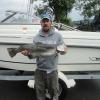
Pays to check the tips of wire rods periodically
Sk8man replied to Sk8man's topic in Finger Lakes Discussion
-

Fish vision and color (an interesting article)
Sk8man replied to Sk8man's topic in Open Lake Discussion
Geez Tim I figured you'd read between the lines..... sorry about that...http://midcurrent.com/science/fish-eyesight-does-color-matter/ -
This article primarily concerns fly fishing in saltwater but many of the basic principles may apply to trout fishing and trolling in fresh water as well. Just something to take us away from obsessing about warmer weather
-

Pays to check the tips of wire rods periodically
Sk8man replied to Sk8man's topic in Finger Lakes Discussion
I've been using 7 strand wire for well over thirty five years so I'm somewhat familiar with keeping the reels in the right position but I also fish a lot alone and between controlling the boat and netting fish and boards pulling etc. s**t happens The interesting thing is on all my other wire and thermocline rods the side rails are hardened so never a problem like this. The really good roller tips are about a hundred bucks or more so I'll stick with this set up for now. I've had some twillis for years but I'm not crazy about them....rather deal with the rollers. I just wanted to give a "heads up" as far as periodic checking of equipment now that we are (hopefully) heading into the real fishing season -
-
-

Finally figured out why spring hasn't shown up yet........
Sk8man replied to Frogger's topic in This Old Boat
-

Pays to check the tips of wire rods periodically
Sk8man replied to Sk8man's topic in Finger Lakes Discussion
-
As i mentioned above the Church TX 44's allow you to run most heavier lines and they are just about as easily seen with flags up as conventional boards and other than with real big waves and you probably wouldn't want to run boards then anyway even if they do cut through the water OK.
-
They came standard on my TX 44 boards but I made some from stiff "piano" wire for my Yellowbirds and used orange duck tape made into a square for the flags (waterproof and works good). In Spring traffic or derbies I run my outrigger s instead of boards and people see me coming and generally stay away. I also put some fluorescent tape "bands" on the outriggers to make them fairly idiot proof
-
I know most guys use twilli tips for their stranded wire rigs and that apparently the 19 strand Torpedo wire is reputed to be less abrasive to rod tips and guides but in checking over my (7 strand wire) stuff today and re-tying all terminal knots and connections I was a bit surprised when I inspected the ROLLER TIP of my rod (after one season with them). I had figured that I would be OK with less expensive roller tips because the really good saltwater stuff is VERY pricey. I never had any actual problems this season despite a lot of heavy action with them from salmon etc. The attached pic is what I found.....the stainless wheel part of the roller is fine but the damage occurred to the support side pieces which are a softer metal. The rod eyes were fine. I also had a nearly invisible kink in the 30 lb wire a few inches from the tip so it was pretty lucky I checked things out...just a FYI in the way of disaster prevention
-
I second Zack's advice. If it is space on the boat you want to save just go with inlines....the TX 44's are a good choice for running most stuff....
-
I'd also use the paint that is made specifically for use on plastic
-

To match or not to match. That is the question?
Sk8man replied to DJ 17's topic in Tackle and Techniques
Some times we make this stuff more complicated than it needs to be. I love to experiment so for me it is a matter of trying different things on a given day/conditions to see what works that is what I base my decision on so I give a try, wait a little while (say 15 minutes to1/2 hr.) and change things up as you mentioned above and try that. In my view there is no "magic bullet" or answer that will work all of the time either way.....like us fish can be "fussy" -
I've been tying my own flies and rejuvenating lures that I haven't used for a long time but were good other than the finish....it's a chance to try out new colors or combinations and experiment a little cheaper (and I don't know where I'd put any more lures anyway)
-
-

Wanted Looking for a 21' Penn Yan Tournament
Sk8man replied to Adm Byrd's topic in Classifieds - Buy, Sell, Trade or Rent
-
-

Wanted Looking for a 21' Penn Yan Tournament
Sk8man replied to Adm Byrd's topic in Classifieds - Buy, Sell, Trade or Rent
It would be a lot cheaper to just diet Bob -
Perhaps resistor type plugs as well? Make sure your transducer wire is not co-mingled with the power wire or other power wires and that the power wire for the depth finder is away from other wires or sources of interference (e.g.engine power source). Try turning down the gain to check for turbulence induced interference (screen "noise") vs. electrical interference. They usually look a little different but not always.
-


